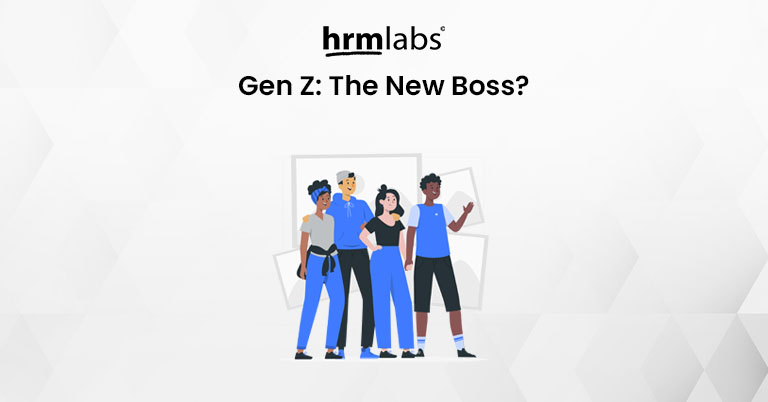As the workforce continues to evolve, there’s a new generation shaking things up in Singapore: Generation Z. Born between the late 1990s and early 2010s, Gen Z is entering the workplace with fresh ideas, unique values, and a whole new approach to work.
So, what makes this generation different, and how can companies create a workplace that embraces their dynamic perspective while also supporting the more established Millennial workforce?
The Rise of Gen Z in Singapore’s Workforce
In Singapore, Gen Z employees are becoming a significant part of the workforce, bringing with them a tech-savvy mindset and a digital-first approach. Raised in an era where the internet was already a part of daily life, this generation is highly adaptable to new technologies and digital tools, making them naturally equipped to navigate today’s fast-paced business environment.
But it’s not just their comfort with technology that sets them apart. Gen Z also places a strong emphasis on work-life balance, mental health, and personal growth. In an era defined by burnout and hustle culture, this generation is pushing back, prioritizing their well-being over traditional career expectations. Unlike previous generations, they are less likely to work excessive hours or sacrifice their personal lives for professional success.
Key Traits of Gen Z: Breaking the Mold
Here are some common traits that define the Gen Z workforce:
- Adaptability to Technology: Gen Z is the first true digital native generation. They grew up with smartphones, social media, and instant access to information, making them highly proficient with digital tools and collaborative software.
- Work-Life Balance: While they are ambitious and hardworking, Gen Z values their personal time and mental health. Flexible working hours and the option to work remotely are major draws for them.
- Focus on Mental Health: Mental health and emotional well-being are not just buzzwords for Gen Z. They expect companies to foster an environment that prioritizes mental health, offering support systems and a culture that promotes a healthy work-life balance.
- Entrepreneurial Spirit: Many Gen Z workers are entrepreneurial-minded. They value creativity, autonomy, and opportunities to lead, often preferring dynamic roles where they can innovate and grow quickly.
Millennials vs. Gen Z: A Generational Comparison
While Gen Z brings a fresh approach to work, the Millennials—who are currently the largest segment of the workforce—have their own set of values. Here’s how they compare:
- Teamwork vs. Independence: Millennials often thrive in collaborative, team-oriented environments, whereas Gen Z tends to prefer more independence and flexibility in how they work.
- Loyalty vs. Growth: Millennials are generally more likely to seek stability and long-term career paths, often valuing company loyalty. On the other hand, Gen Z is more focused on rapid growth and self-improvement, which means they may switch jobs more frequently to find the best opportunities.
- Work Hard, Play Hard vs. Work Smarter, Not Harder: While Millennials popularized the idea of “work hard, play hard,” Gen Z is more focused on efficiency. They prioritize working smarter, seeking to use digital tools and automation to optimize their workload without compromising their personal time.
Tips for Building a Workplace Culture for Both Generations
With Gen Z and Millennials working side by side in Singapore, companies must create a workplace culture that resonates with both generations.
Here are some strategies to help foster a harmonious and productive environment:
- Offer Flexibility: Both Millennials and Gen Z appreciate flexibility, whether it’s through remote work options or flexible schedules. Providing employees with the freedom to manage their time and tasks can boost productivity and job satisfaction.
- Emphasize Mental Health and Well-Being: Offer programs that promote mental health, such as wellness initiatives, counseling services, and stress management workshops. By prioritizing well-being, companies can show employees that they value more than just their output.
- Leverage Technology: Since Gen Z is already proficient with technology, companies should invest in digital tools that streamline collaboration and communication. Tools like project management software, cloud platforms, and video conferencing systems can help bridge the gap between generations and improve workflow.
- Create Clear Growth Paths: While Millennials value stability, Gen Z craves rapid growth. Employers can meet both needs by offering clear career advancement opportunities and mentorship programs. By providing structured paths for professional development, companies can retain top talent from both generations.
- Encourage Open Communication: Millennials and Gen Z both appreciate transparency and open communication. Companies should foster a culture where employees feel comfortable sharing feedback, asking questions, and expressing concerns. Regular check-ins and open-door policies can help build trust and improve morale.
Final Thought: Bridging the Generational Gap with Innovation
As Gen Z continues to enter the workforce, they bring with them new ideas, values, and expectations. By understanding the differences between Gen Z and Millennials, Singapore companies can create a culture that supports both generations and taps into their unique strengths. Through flexibility, open communication, and a focus on mental well-being, businesses can build an environment where innovation and inclusivity thrive.
And for companies looking to streamline their HR processes, HRMLabs offers solutions that cater to the needs of a multi-generational workforce. With features like integrated scheduling, payroll automation, and employee wellness tracking, HRMLabs can help businesses manage their teams efficiently while fostering a positive and productive work culture.
Are you ready to embrace the future with a workplace that works for both Millennials and Gen Z? Let HRMLabs help you get there.


